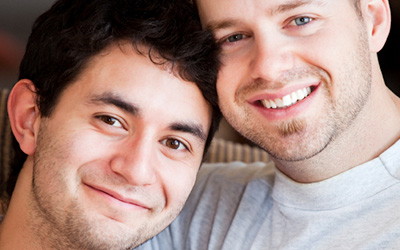



Many of our ideas about relationships come from the people around us. Our friends may make it seem like their romantic connections are consistently “perfect,” posting pictures and sharing stories-but only of the happy, affectionate moments.
Media often portray romantic relationships as effortless and focused on sexual attraction. In a recent Student Health 101 survey, 39 percent of respondents said media portray relationships as “easy.” At the end of many movies, we’re meant to believe that couples will live “happily ever after.”
Comparatively, nearly 82 percent of the survey respondents said they would use the word “challenging” to describe real-life romantic connections.
While dating and other romantic relationships can definitely include ease and passion, it takes work to sustain one that’s healthy.

The connection and affection you feel with a partner are important in a successful relationship, but in addition to those warm, fuzzy feelings, there are other crucial elements for keeping a relationship strong and satisfying. Here are some essentials:
Unlike in movies, where eye contact seems to transmit nearly everything, real-life relationships require communication-with words.
Rather than playing a guessing game, actually say something! Keeping feelings or concerns pent up can lead to resentment and misunderstanding.
Larissa S., a senior at George Fox University in Newberg, Oregon, notes, “I realized early on in my relationship that my partner can’t ‘sense’ how I’m feeling. Communication is huge!”
When having an open dialogue, use “I” statements. Communicate that you know you’re involved in the situation, and say how it affects you.
For example, you can say, “I feel upset when we don’t get to see one another.” You’re expressing your feelings in a non-judgmental way, and in doing so, your partner most likely will respond respectfully and be open in his or her communication to compromise. This can enhance your emotional intimacy and strengthen your connection.
Alex W., a senior at the University of Mount Union in Alliance, Ohio, says he and his girlfriend have agreed to be open with one another. He shares, “We find ways to show each other we still care.”

It’s natural for couples to disagree at times, and to express concerns through dialogue. Here’s how to “fight fair”:
Julie F., a junior at Bethel University in McKenzie, Tennessee, shares, “I’ve always found it helpful to discuss things directly and I never use the word ‘you.’ I [say things] like, ‘Should we try this?’ Because we’re a team.”
Ryan M., a senior at the University of Lethbridge in Alberta, Canada, says ignoring problems can lead to accumulated resentment and anger, which may then surface at unpredictable times as hostility.
Lisa Smith, coordinator of domestic violence services at Rutgers University in New Brunswick, New Jersey, cautions that “fair fighting” isn’t achievable in abusive relationships.
If your relationship is characterized by stress and anger, consider talking to a counselor or someone else you trust about your concerns. It can be difficult to decide if a troublesome dynamic can be worked on, or if it should be ended before the situation worsens.
If your romantic relationship is abusive-if you feel badly about yourself, unsafe, or manipulated-it’s not your fault. A professional at your counseling or health center can help you talk through your feelings and make a plan to safely end the relationship.
Relationships take effort, respect, and open communication. Though they may not be as carefree as in the movies, with patience and collaboration your romantic partnerships can be happy and healthy.
Janine works as a prevention and programming associate at Princeton University and is a graduate of the University of Delaware.
Michele Passonno, relationship and sexual violence prevention coordinator at the University of Georgia in Athens, explains, “If there has been a consistent pattern of behavior that causes discomfort and uneasy feelings, a person should strongly consider those ‘red flags’ and end the relationship before it becomes more abusive.”
Passonno says healthy romantic relationships are based on mutual respect and come from a place of equality. As she states, “No one deserves anything less than that, and no one has the right to treat someone in ways that are less than that.”
Take a quiz about relationship health.
If you or someone you know is in an abusive relationship, reach out for help. Speak with someone you trust at school or in your community. You can also contact:
The National Domestic Violence Hotline
1-800-799-SAFE (7233)
TTY: 1-800-787-3224
Video phone for deaf callers: 1-855-812-1001




